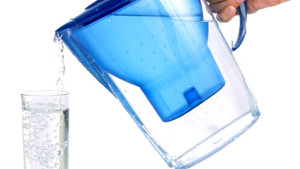As college students, sleep is something that is often forgotten and treated like any other daily task. I know I personally have to make sleep a part of my schedule in my calendar as if it’s just another thing I need to get to at some point during the day. A few years ago I got in the bad habit of staying up until nearly 2AM every night doing work and waking up at 6AM to do it all over again. Of course, my mom, who insisted this lifestyle was bad for my health, berated me for this. Always my response to her would be, “I’ll catch up on sleep over the weekend!” It seemed to work for me too. I would sleep about 10 hours per night, with occasional naps thrown in as well and the entire span of time I did this I never felt continuously run-down or unhealthy but when I think about it more it really makes me wonder if it is actually possible to “catch up” on sleep. I thought this would be a pertinent topic because I know for a fact that other people my age also have the habit of getting little sleep during the week and then trying to equalize it on the weekends. Can you really catch up on sleep? Are the recommended sleeping hours (eight hours per night) subjective to the person or necessary for all humans to function? Was it my age or another factor that made me feel like I could go with such little sleep?

The first thing I found was that the recommended eight hours is actually an average. Experts say that some people require only six hours while others may require up to ten. (Scientific American) Also there is such a thing as “sleep debt” otherwise known as the amount of hours we owe ourselves when we skim off on our daily requirement. People can reduce some of their sleep deficit, but most experts agree that if the amount of sleep lost totals more than five hours during the week, there’s no getting it back. (Scientific American)
Interestingly enough, Penn State’s College of Medicine did a study on this very subject a few years ago. Subjects slept a full 8 hours for four nights to establish a baseline, then 6 hours for six nights to simulate a typical work week, and finally 10 hours for three nights in “recovery sleep mode.” Throughout the study they measured daytime sleepiness levels, stress levels, attention span, and inflammation. After the recovery period, everything had returned to normal except for attention span. The takeaway from the study was that recovery periods of sleep can be effective, but will not “fully restore health and function.” (psychologytoday.com)
All in all, this experiment gives some insight into whether “sleep debt” is a real thing, but there are still some factors that may have compromised the experiment. As the subjects were just 30 college age students, it’s possible their sleep schedules were already out of order. Also details were not given as to how the people were monitored so they slept the full amount of time, as some people take longer than others to fall asleep and some may have woken up earlier than they should have.
Even without the experiment, most data on the subject suggests that overall, recovery periods of sleep may work short term, but could have negative effects down the line. For me personally, it is helpful to have this information in the back of my mind when I know I have gone to long without a good night’s sleep during the week. I’m still not sure if I will be able to change my current habits because I’ve been practicing them for so long, but at least I won’t be fooling myself anymore.











